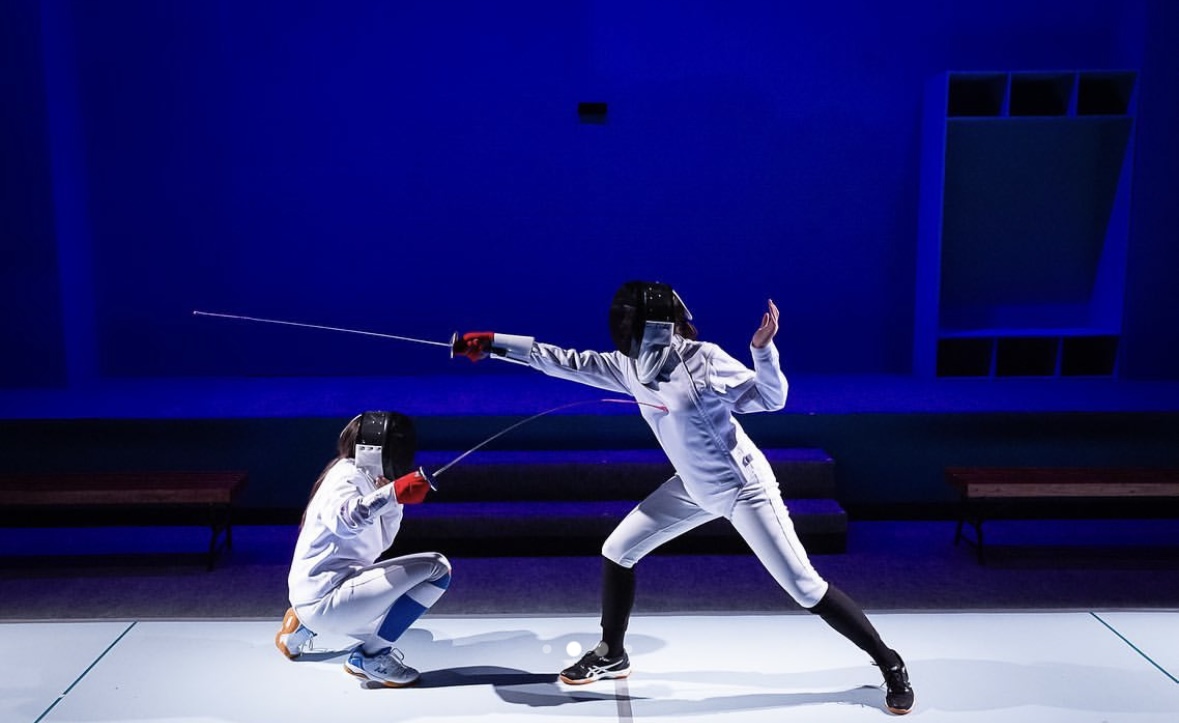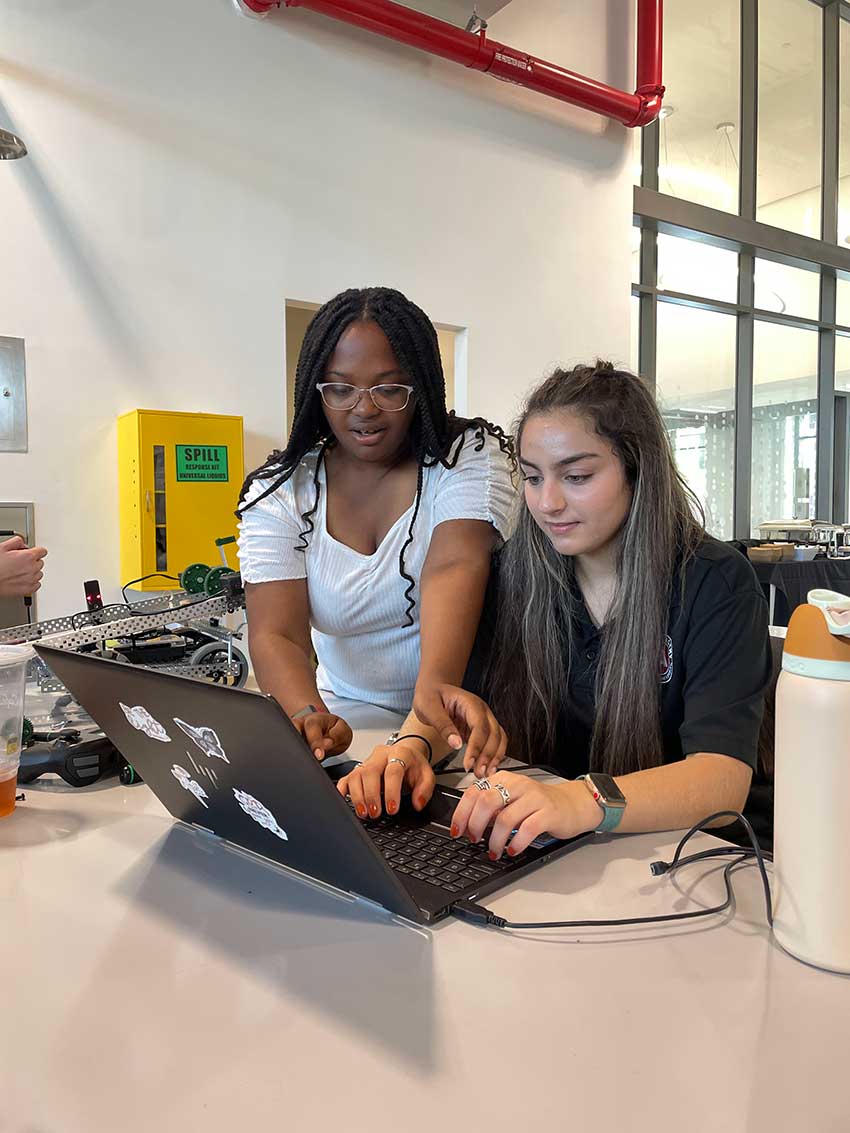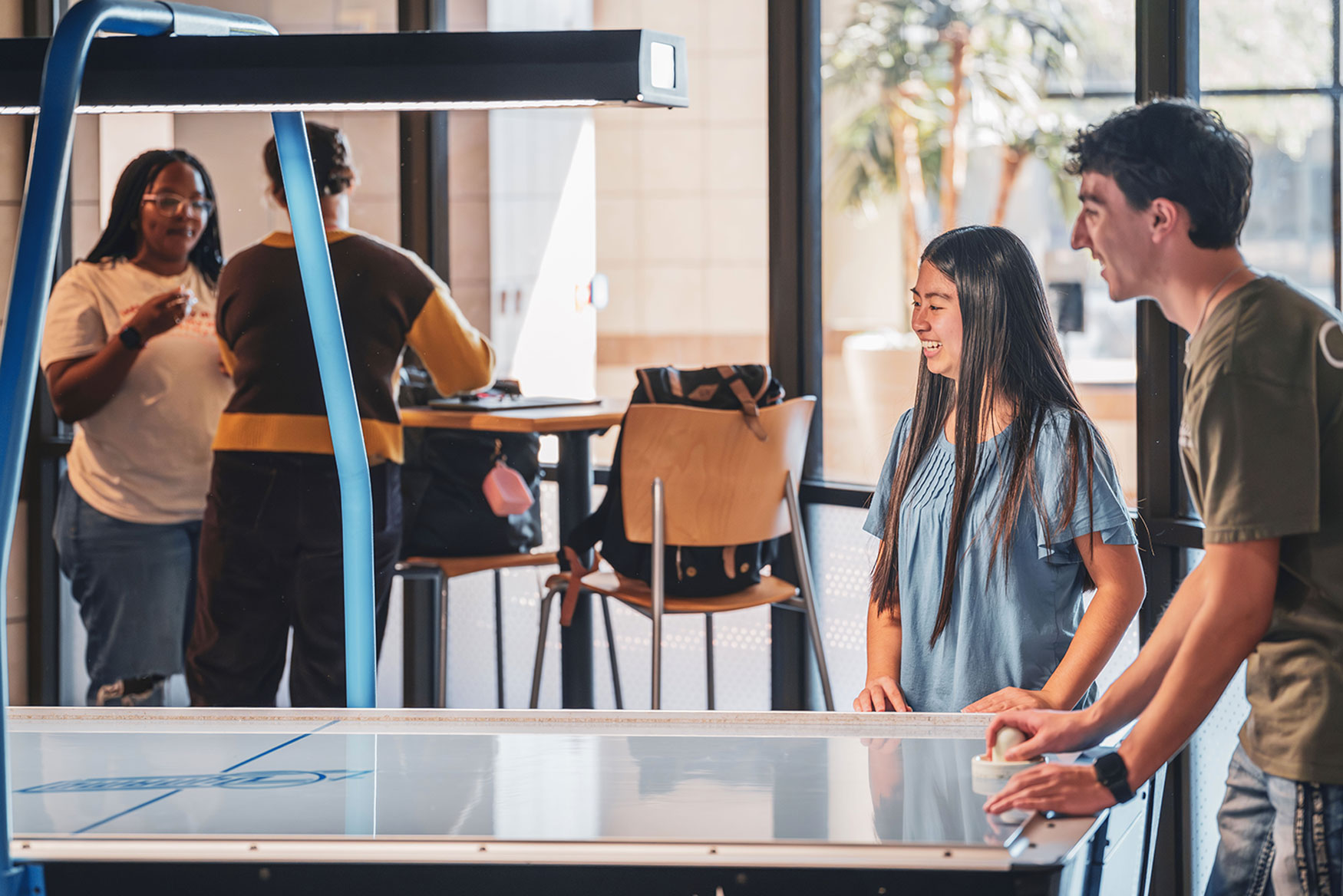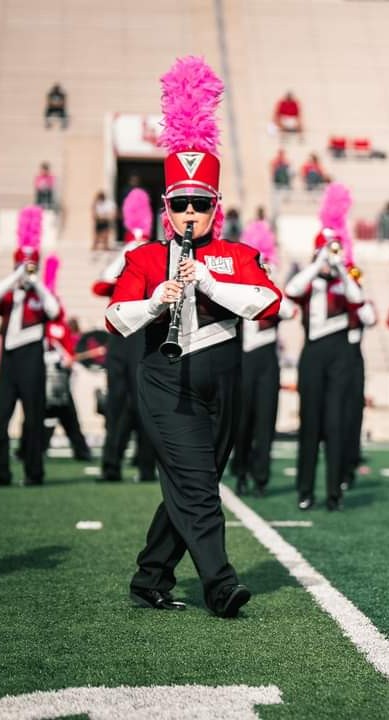Student Life
Social Activities
Texas Academy students enjoy access to the complete offerings of a major university — seminars, distinguished lecturers, forums in the fine arts and the humanities, research and lab facilities, professional societies and mentors. Students enjoy a full calendar of cultural and social events that include prom, recitals, concerts, plays, cultural celebrations, homecoming, research conferences and sporting events. Texas Academy students may participate fully in Lamar University campus activities (except Greek life and NCAA Sports), through campus-wide student organizations, university newspaper, band, cheer, choir, dance, theatre, orientation leadership, academy-exclusive clubs and other student leadership opportunities.
To support the development of its students, Texas Academy offers a variety of extracurricular activities designed to fulfill current students’ interests and goals. All officers in Texas Academy organizations must be in good standing and earn and maintain a 3.0 GPA. Texas Academy students also have the opportunity to further their leadership skills by organizing and operating their own special interest clubs and organizations.



Texas Academy Clubs
- Club Overview
Clubs provide both social interaction, service opportunities, and contribute to the overall student experience, therefore are expected to join a minimum of one Academy club, and one university organization.
The membership fee for each Academy club is $20 (your first club fee is covered in your Student Activity Fee), with the exception of Model UN which requires a $50 fee to cover competition registration.
Members will need to attend each club meeting, participate in various activites, and actively contribute to the club.
- Art Club
In the Texas Academy Art Club, you can hone your art skills, learn new techniques, and meet people who share your interests!
During the school year, we plan to:
- Explore famous artworks from throughout history from prehistoric cave paintings to renaissance to modern surrealism-- and anywhere in between.
- Experiment with different media and art techniques, such as painting, origami, drawing comics, or creating mosaics.
- Dip into other categories of art, ranging from architecture, fashion, poetry, and more!
(password: texasacademy)
- Gaming Club
Gaming Club is about connecting, learning, and exploring all corners of the gaming community. In this club, we will discuss news in gaming, learn about different aspects and features of games, and explore different video games to gain a variety of new experiences!
- Med and Safety Club
Medical (Med) Club is dedicated and focused on hosting medical related activities and hands-on experience. Club members will be given multiple opportunities to learn about various medical subjects and medical applications to the real world.(password: texasacademy)
- Journalism Club
The Journalism Club will capture and share meaningful memories through the Texas Academy newsletter, and yearbook.
(password: texasacademy)
- STEM Club
STEM Club explores opportunities for students to explore careers, topics, and challenges through project-based learning opportunities that utilize a collaborative learning approach, experimentation, and problem-solving approaches. Activities include robotics, coding, environmental engineering, and so much more.
(password: texasacademy)
- RED Robotics
Red Robotics is sponsored by the College of Engineering with the assistance of the Texas Academy Administration.
VEX competitions are highly engaging and hands-on. Participants get to work with real-world technology, which sparks their interest in STEM fields. When students see the practical applications of science and technology, they are more likely to develop a passion for these subjects.
The 2024 RED Robotics teams competed in the VEX Robotics Texas Region 3 Championship, and one of our teams qualified for the World Championship.
Texas Academy Committees
- Social Media Committee
The Social Media Committee is overseen by the Texas Academy Administrators. They are responsible for managing all Texas Academy social media accounts, taking photos at events alongside the Journalism Club, and creating engaging content.
Join the Social Media Committee
(password: texasacademy)
- Social Activities Committee
Social Club is responsible for planning events and social gatherings within the academy. The primary goal is to create activities where students have the opportunity to network and build relationships with one another.
Join the Social Activities Committee
(password: texasacademy)
Texas Academy Student Organizations
- Peer Mentor Program
The Texas Academy Peer Mentor (PM) Program was developed and designed in the hopes of creating a natural peer to peer leadership program and fostering an environment of inclusion and sense of community. PM’s are not only expected to be a leader amongst their peers but to be an example and a face for the Texas Academy Program. PM's are expected to encourage positive behaviors and serve as a positive role model for all students.
When selecting the Lead and Peer Mentors, we seek students who are enthusiastic, maintain positive attitudes, are active within the academy, and are always the first ones to jump in and lend a helping hand.
Our Texas Academy Peer Mentors and Lead are expected to uphold to the following expectations:
- Must be in Good Standing
- Be Reliable
- Be Trustworthy
- Possess a positive attitude
- Be a Leader
- Be the Example
- Shall not receive disciplinary actions against them.
- Adhere to the confidentiality pertaining to staff and students
- Students who break confidentiality will be given an INCIDENT and will immediately be removed from their role.
Lead’s and Peer Mentors will sign a non-disclosure agreement when selected for the role. This states that you will not discuss private matters with any other students. There may be times when information must be shared with Texas Academy administrators on behalf of the students’ safety, this is allowable and will be held confidential.
If you have any issues meeting the above expectations, please discuss your concerns with your Peer Mentor Lead and Advisor. Students that do not adhere to the above expectations will be removed from their role immediately. Additional disciplinary actions may follow.
PM Lead Overview
The Texas Academy Peer Mentor Program will have a Lead each academic year. The Lead along with all Peer Mentors are selected by Texas Academy staff. In addition to portraying characteristics and the expectations of a PM, the PM Lead is required to lead by example and to be available to assist the Texas Academy program as needed through direct interaction with his/her fellow peers, Class Presidents, and TA Administrators.
Responsibilities of a Lead:
- Meet monthly with Class President’s to plan the monthly CM meeting and monthly activity
- Meet monthly with the PM Advisor
- Oversee the Peer Mentor Groups
- Monitor PM GroupMe accounts to verify PMs are communicating with their mentees regularly
PM Overview
Texas Academy Peer Mentors serve as the primary point of contact for new and incoming students, helping them navigate college life for the first time. Whether offering a listening ear, being a friend, or serving as a role model, the role is to provide guidance and support.
Peer Mentors will help coordinate and facilitate monthly activities planned with or by the Lead and Class Presidents. Additionally, the PMs are responsible for sharing important information with students to keep them informed and engaged.
Any member who, receives any disciplinary action, or does not perform their duties shall be released and replaced, if needed, by the Texas Academy administration at any time. It is a privilege to be elected to serve the student body in the Texas Academy.
- Junior and Senior Class Presidents
The Texas Academy Class President’s serve as a model for leadership training and a key element in community building.
The Texas Academy Class President’s will serve the students of the academy by:
- Lead monthly community meetings
- Work together to organize a fundraiser for the student body
- Plan 1 monthly activity on the second Thursday of each month – for example, game night, bingo, etc.
- Manage student body budget in LU Hub account with assistance of administrators
Note: All positions are not confined to the responsibilities listed herein and may encompass additional duties and initiatives as needed to advance the mission and respond to the dynamic needs of the student body.
Election Rules:
Senior Class President: The election for this position will be held during the spring semester for juniors only.
- Must be nominated by a fellow classmate or nominate themself.
- Receive permission from TA Administrator to confirm eligibility to run for the office.
- Address his/her fellow classmates, providing relevant insight into why they are qualified and a vision to the student body of things they plan to work on during their presidency.
Junior Class President: The election for this position will be in October for Juniors only.
- Must be nominated by a fellow classmate or nominate themself.
- Receive permission from TA Administrator to confirm eligibility to run for the office.
- Address his/her fellow classmates, providing relevant insight into why they are qualified and a vision to the student body of things they plan to work on during their presidency.
Eligibility:
- Must have a semester and overall GPA of 3.0 or better.
- Candidates may run if they are currently on academic probation; if condition(s) of academic probation is not met the incumbent is no longer remain eligible and will be prohibited from serving.
- Candidates must have a clean disciplinary record, with no actions taken against them for misconduct.
- Must be approved by TA Administrators.
Note: In the event that a class officer is removed from his/her role, the opponent with the highest number of votes will take their place. If necessary, a runoff election may be held.
Texas Academy Class Presidents and Peer Mentor Lead will meet a minimum of once per month to create upcoming Community Meeting agendas and submit the information to TA Administrators for approval. All members must be in good standing and maintain a 3.0 GPA.
Any member who consistently misses meetings, receives any disciplinary action, or does not perform their duties shall be released and replaced, if needed, by the Texas Academy administration at any time. It is a privilege to be elected to serve the student body in the Texas Academy.
- Texas Academy Honor Society
The goal of the Texas Academy Honor Society chapter is to bring the accomplishments of outstanding students to the attention of parents, teachers, peers, and the community. Our chapter will strive to give practical meaning to the Society’s standards of scholarship, service, leadership, and character. These four ideals are considered as the basis for selection. No student is inducted simply because of a high academic average. The Texas Academy Honor Society strives to recognize the total student—one who excels in all these areas.
To qualify, TA junior level students must have a minimum 3.5 GPA and have completed at least 18 service hours in the fall semester, and 18 completed for spring before selections are made in March. They may also have completed all required hours in the fall term. Students may not have any occurrences for the current academic year in which they are applying, and they may not have any incidents or infractions on their record for any year enrolled in the academy.
TAHS applications will open in November of each fall term and will close the Sunday before the spring semester begins. All selections will be made by the middle of February.
TAHS President Role:
President: Responsible for setting up regular group meetings and communicating with the advisor on meeting overviews and upcoming volunteer work. President will also serve on the TA Advisory Council once formed.
TAHS Expectations:
TAHS students must maintain a 3.5 semester and overall GPA and complete 18 service hours a semester, or 36 during the first semester. If a student receives any disciplinary action, they are immediately subject to review for continuation in TAHS. The selected events will be exclusive to TAHS members only for volunteering. These include Honors Scholars Day, Paneling at Preview Days, Spindletop Events with Welcome Center, working the booth at Cardinal View, Texas Academy Graduate Luncheon, and Graduation.
TAHS members are expected to participate at the TAHS induction ceremony where they may be asked to speak to one of the pillars, open and/or close, hand off certificates to new members, and serve as greeters.
TAHS members will receive a certificate when inducted and a stole as a senior for graduation.

